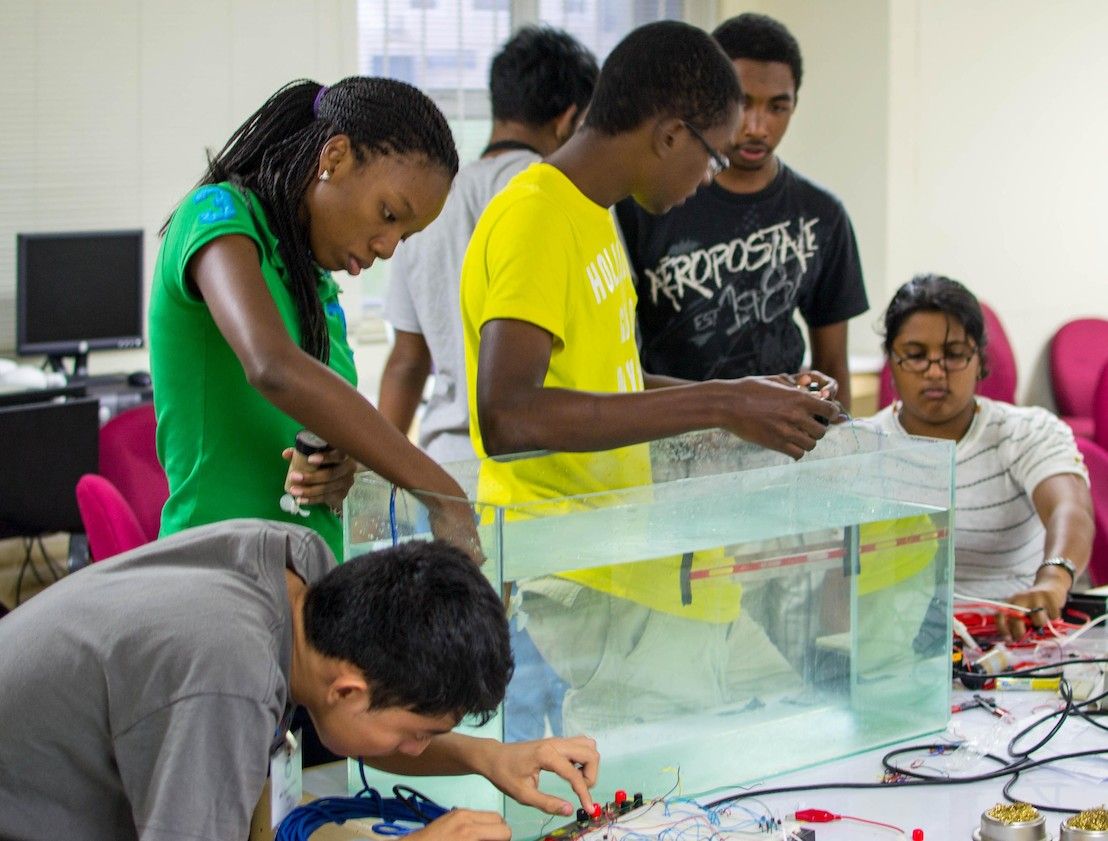Caribbean Science and Engineering Graduates: Globally Among the Best
The Caribbean Science Foundation (CSF) graduates students into the worlds top rated universities
Caribbean science and engineering students are making their mark on the world with the graduation of 24 students - the largest class yet - from the Student Program for Innovation in Science and Engineering (SPISE), a flagship Program of the Caribbean Science Foundation (CSF).
The non-profit organization which promotes science and technology in the Caribbean has previously propelled graduates into the world's top rated universities, now including MIT this coming September. With the recent graduation on August 12th, the CSF aims to continue this significant achievement with academic Programs from within and beyond the region.
The smallest group was 10 students in the 2012 inaugural class, and the previous high was 22 in the 2014 class. This year, students between 16 and 18 years of age from 13 countries participated in SPISE – Antigua, Barbados, Belize, Dominica, Grenada, Guyana, Jamaica, Martinique, Montserrat, St. Kitts and Nevis, St. Lucia, St. Vincent and Trinidad.
The annual four-week program was held on the Barbados campus of the University of the West Indies (UWI), and included university-level calculus, physics, biochemistry, entrepreneurship, and Caribbean unity, as well as hands-on projects in computer programming, under-water robotics and renewable energy/electronics.
SPISE instructors comprised academic and industry professionals from the U.S. including MIT, and faculty from UWI. In addition, career seminars from successful professionals ranged from biomedical engineering and computational biology to optics and economics. Guest speakers included Barbadian Dr. Andrew Phillips from Microsoft (U.K.), Professor Robert Sah from the University of California – San Diego, Dr. Dinah Sah - Chief Scientific Officer at Voyager Therapeutics, Dr. Jeanese Badenock – Deputy Dean of the Faculty of Science and Technology at UWI-Cave Hill, Barbadian Dr. DeLisle Worrell former Governor of the Central Bank of Barbados, Professor Jay Mandle from Colgate University, and Barbadian Professor Cardinal Warde from MIT.
On Friday, August 11, 2017, the program culminated with the students of the 2017 SPISE presenting their underwater robotics, renewable energy, computer programming and entrepreneurship projects to an enthusiastic audience of sponsors, colleagues, friends and family.
Professor Cardinal Warde, Interim Executive Director of the CSF, who launched SPISE in 2012 said the bedrock of the Program was to identify and encourage the next generation of science and engineering leaders.
“The program’s goal is to help groom the next generation of Caribbean science and engineering leaders. Creativity, innovation, teamwork and excellence are the standards at SPISE, and the students graduate with not only newly found knowledge but also increased self-confidence" said Professor Warde.
Dr. Dinah Sah, SPISE Director, pointed out that SPICE graduates had gone onto globally respected universities.
“Of the 109 SPISE graduates to date, many have gone on to the world’s top universities, and this September, we will have 4 former SPISE students at MIT, the largest number at any single university outside the Region. We are tremendously grateful to our sponsors and supporters without whom this program would not have been possible.”
SPISE graduates receive assistance with their university applications, and are eligible for internship positions in the Caribbean, Canada and the USA, which give them the opportunity to work in business settings and to experience first-hand the application of science and engineering to developing products and services.
Key important partners for SPISE are the UWI - Cave Hill Campus, and the Caribbean Examinations Council (CXC).
More information about SPISE can be found at http://caribbeanscience.org/projects/spise.php
Want to help more Caribbean science and engineering student make their mark on the world? Support the CSF
Help support the work of the Caribbean Science Foundation, using one of the 4 payment options below. You may designate your contribution for SPISE, BJRC, or unrestricted.
|
1. For US citizens, who wish their donation to be tax-deductible, please submit your donation via CADSTI- New England, a 501(c)(3) organization, by: (a) check made out to CADSTI-New England (designate 'for SPISE', 'for BJRC', or 'unrestricted' on the memo line) and mailed to:CADSTI-New England 15 Huckleberry Rd., Hopkinton, MA 01748 or (b) credit card at http://cadsti-ne.org/donations.html |
|
| 2. By wire to: Bank Name: BANK OF NOVA SCOTIA SWIFT Code: NOSCBBBB Branch code: 40055 Bank Address: Broad Street, Bridgetown, Barbados Account Name: Caribbean Science Foundation Account Number: 9013083 |
3. By check made payable in US dollars or Barbados dollars to the Caribbean Science Foundation, and mailed to: Caribbean Science Foundation CARICOM Research Building UWI Cave Hill Campus St. Michael, Barbados, West Indies |
|
|


